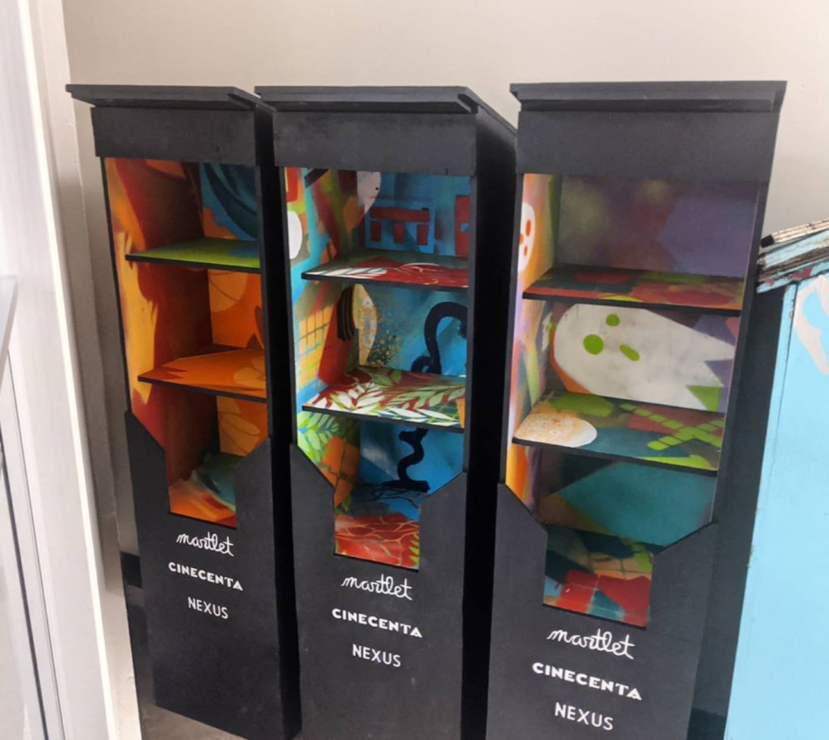COVID-19 coverage underscores the necessity of journalism

Even with all of its unpredictability, 2020 has proved the importance of local news coverage. Local news helps people learn about local issues, and take action if they decide to do so. These outlets help keep democracy alive in countless communities across the country, continent, and globe.
While the international and national news cycles grapple with big-picture issues and analysis, local and independent outlets fill the coverage gaps. For news happening in our own backyards, these outlets are integral to the fabric of our community.
Last month, the Pew Research Center in the U.S. reported how important local news outlets served as sources of information for Americans during the pandemic. In an April survey, 61 per cent of respondents said they were following the COVID-19 outbreak at both the national and local level, however, 23 per cent said they paid more attention to news at the local level, than the 15 per cent of Americans who followed national stories more.
Although critically underfunded and overworked, journalists in small-town outlets break news that impacts the lives of countless individuals outside major cities. For example, just last month the New York Times published a feature on a reporter who is one of the last journalists covering municipal affairs in the small town of Pottstown, PA.
Despite the financial struggles and private investors who bought his newspaper, and slashed their bottom line to make a profit which forced the majority of his colleagues to quit or be laid off, Evan Brandt, a reporter at the Pottstown Mercury, felt it was his calling to inform citizens of the news that affects them each and every day.
From exposing a chemical company’s risky storage, to saving a local YMCA, without Brandt reporting, numerous stories would have gone untold to the 22 000 people living in Pottstown.
“Evan is the voice of the voiceless,” Johnny Corson, president of the local chapter of the NAACP, said to the New York Times. “He speaks for the little people. If we lose him, we’re in trouble.”
This is but one example of the importance of local journalism.
There are numerous other Evan Brandts across the world, pledging their careers to tell stories that will directly impact individuals living in small towns, and as paywalls block access on many mainstream, national outlets, the stakes of your local reporter’s job have never been higher.
Earlier this month, Victoria Mayor Lisa Helps and City Councillor Charlayne Thornton-Joe recommended the city pass a motion to remove newspaper boxes from city property. In the original text, the motion argues that people can get their news from the internet. While the motion to remove the boxes could be seen as another nail in the coffin of local journalism, we don’t blame the City of Victoria for their decision nor do we believe they meant disrespect in posing it to council. The motion has been postponed to September.
The motion does, however, draw a common assumption to the foreground: that local newspapers are less relevant, and that social media feeds and national papers can replace the valuable roles they play.
It’s easy to overlook the importance of local journalism. In our siloed media world, it is easy to forget that social media posts are not news and communications departments give a very slanted view of any announcement they put out. It is also easy to forget that calls for systemic change, such as the Black Lives Matter movement, require local journalists holding power to account and being on the ground at these events.
At the Martlet, with an average circulation of 2 500 copies per issue, we pride ourselves on not only covering issues that affect UVic students but also stories that impact the wider campus community. Although we are based out of UVic, we are independent from both the UVSS and UVic.
From covering UVic’s ongoing response to the COVID-19 pandemic to homelessness issues around Victoria, we are dedicated to informing our readers — be it students, parents, or faculty — about the news that impacts them. In our newsroom, a quote from George Orwell written on a whiteboard reads, “Journalism is printing what someone else does not want printed; everything else is public relations.”
Although we love this quote as a general motto, it is actually disputed whether or not Orwell ever said that. Ironically, a quote that speaks about the importance of writing the truth does not have a known true author. Aside from not being public relations, journalism also holds the integral role of publishing true and factual stories.
We’ve been holding power to account for 73 years, before the campus on Ring Road even existed, and we don’t plan to stop any time soon.







